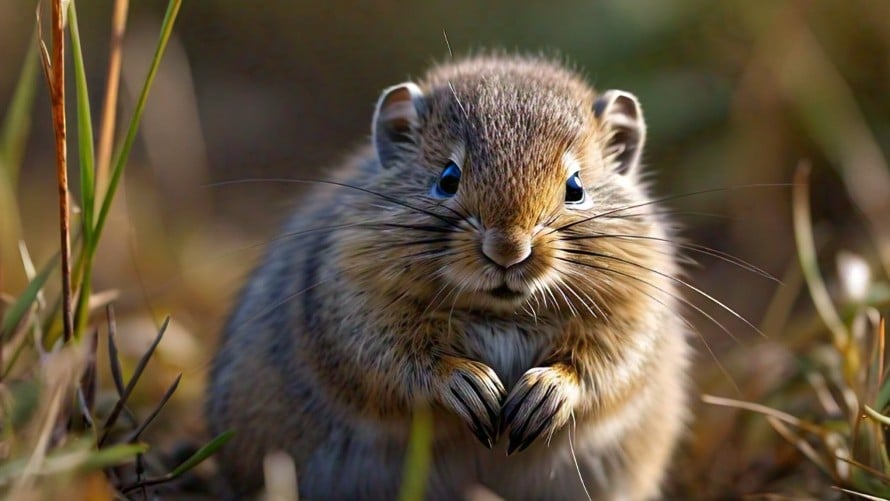Researchers at The University of Texas at El Paso (UTEP) are making strides in understanding the biological basis of depression, a debilitating condition that affects millions of people worldwide.
In a groundbreaking study published in the Journal of Affective Disorders, UTEP psychologist Sergio Iñiguez, Ph.D., and his team have discovered that prairie voles, small rodents native to North America, can serve as effective animal models for studying clinical depression.
Depression is a leading cause of disability, characterized by persistent sadness, loss of interest in activities, and changes in sleep and eating patterns. While researchers have some understanding of the factors that contribute to depression, the ethical challenges of conducting neurobiological research in humans have made it difficult to pinpoint the underlying biology of this condition.
In their study, Iñiguez and his colleagues focused on the impact of “bullying” on prairie voles’ behavior. They exposed individual male voles to more aggressive males over a ten-day period, inducing what they call “social defeat stress.” The bullied voles exhibited changes in body weight, performed worse on spatial memory tests, and were less sociable compared to their non-bullied counterparts. Notably, the bullied voles showed no preference for sugar water over regular water, a pattern known as anhedonia, which is a loss of pleasure in regular activities and a common symptom of depression in humans.
“The findings of this investigation are important because we show, for the first time, that prairie voles display some of the core symptoms of depression after chronic stress exposure – just like humans,” Iñiguez said. “This is exciting because we can now use this animal model to potentially uncover the biological factors that underlie illnesses like depression and anxiety.”
While rats and mice are commonly used in psychology studies, prairie voles share several unique characteristics with humans that make them better candidates for research. These small rodents form monogamous relationships, raise their young in pairs, and even take on parental roles for orphaned pups.
Minerva Rodriguez, a psychology doctoral student and lead author of the study, emphasized the significance of using prairie voles in depression research. “These unique and special animals have opened doors to understanding aspects of depression we simply could not with mice and rats,” Rodriguez said. “Their distinct social behaviors provide fresh research avenues, demonstrating the prairie vole’s immense value as a model for delving into the neurobiology of social stress-induced depression.”
The researchers concluded that “social defeat” activated the voles’ stress response and became a risk factor for symptoms that mirrored those of depression in humans. Future studies will explore how the voles recover from depression-like experiences and how they respond to antidepressant medications such as Prozac or ketamine.
This groundbreaking research, funded by a grant from the National Institutes of Health, has the potential to revolutionize our understanding of the biological underpinnings of depression. By using prairie voles as animal models, Iñiguez and his team are paving the way for the development of more effective treatments for this debilitating condition, offering hope to the millions of people affected by depression worldwide.


